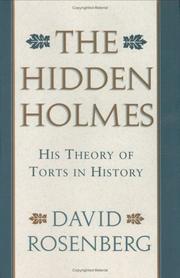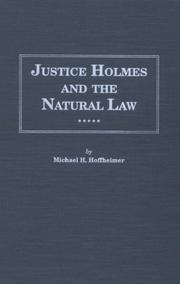| Listing 1 - 9 of 9 |
Sort by
|
Book
Year: 1961 Publisher: New York
Abstract | Keywords | Export | Availability | Bookmark
 Loading...
Loading...Choose an application
- Reference Manager
- EndNote
- RefWorks (Direct export to RefWorks)
Book
ISBN: 0674496159 Year: 1984 Publisher: Cambridge, Mass.
Abstract | Keywords | Export | Availability | Bookmark
 Loading...
Loading...Choose an application
- Reference Manager
- EndNote
- RefWorks (Direct export to RefWorks)
Book
Year: 1944 Publisher: New York, N.Y. Overseas
Abstract | Keywords | Export | Availability | Bookmark
 Loading...
Loading...Choose an application
- Reference Manager
- EndNote
- RefWorks (Direct export to RefWorks)
Book
Year: 1945 Publisher: New York: Overseas editions,
Abstract | Keywords | Export | Availability | Bookmark
 Loading...
Loading...Choose an application
- Reference Manager
- EndNote
- RefWorks (Direct export to RefWorks)
Book
Year: 1956 Publisher: New York Macmillan
Abstract | Keywords | Export | Availability | Bookmark
 Loading...
Loading...Choose an application
- Reference Manager
- EndNote
- RefWorks (Direct export to RefWorks)

ISBN: 0674390024 9780674390027 0674418484 0674418492 Year: 1995 Publisher: Cambridge (Mass.) : Harvard university press,
Abstract | Keywords | Export | Availability | Bookmark
 Loading...
Loading...Choose an application
- Reference Manager
- EndNote
- RefWorks (Direct export to RefWorks)
Strict liability --- Torts --- History --- Holmes, Oliver Wendell --- Contributions in torts --- History. --- Holmes, Oliver Wendell, --- Holmes, Oliver Wendell, Jr. --- United States --- Holmes, Oliver Wendell, - 1841-1935 - Contributions in torts. --- Torts - United States - History. --- Strict liability - United States - History. --- Strict liability - History - United States --- Torts - History - United States --- Holmes, Oliver Wendell, - Jr., - 1841-1935

ISBN: 0815308965 9780815308966 Year: 1992 Publisher: New York (N.Y.): Garland
Abstract | Keywords | Export | Availability | Bookmark
 Loading...
Loading...Choose an application
- Reference Manager
- EndNote
- RefWorks (Direct export to RefWorks)
Natural law --- Droit naturel --- --Holmes, O.W. --- --Holmes, Oliver Wendell --- Views on natural law --- Law of nature --- Natural rights --- Nature, Law of --- Rights, Natural --- Law --- Holmes, Oliver Wendell --- -Views on natural law --- --Holmes, Oliver Wendell, --- Law of nature (Law) --- Nature, Law of (Law) --- Holmes, Oliver Wendell, --- Holmes, O. W. --- Holmes, Oliver Wendell, - Jr., - 1841-1935 --- Holmes, O.W.
Book
ISBN: 0813507588 Year: 1973 Publisher: New Brunswick Rutgers University Press
Abstract | Keywords | Export | Availability | Bookmark
 Loading...
Loading...Choose an application
- Reference Manager
- EndNote
- RefWorks (Direct export to RefWorks)
American wit and humor --- History and criticism. --- Black humor (Literature) --- Blijspel --- Esprit et humour --- Geestigheid and humor --- Genre satirique --- Littérature satirique --- Satires --- Écrits satiriques --- Geestigheid en humor --- History and criticism --- Comedy --- Satire --- Franklin, Benjamin --- Criticism and interpretation --- Irving, Washington --- Poe, Edgar Allan --- Hawthorne, Nathaniel --- Melville, Herman --- Twain, Mark --- James, Henry --- Mencken, Henry Louis --- Cabell, James Branch --- Faulkner, William --- O'Connor, Flannery Mary --- Barth, John --- Welty, Eudora --- Wit and humor --- Holmes, Oliver Wendell, Jr. --- Bierce, Ambrose Gwinett --- Percy, Walker

ISBN: 0374528497 9780374528492 Year: 2001 Publisher: New York (N.Y.) : Farrar, Straus and Giroux,
Abstract | Keywords | Export | Availability | Bookmark
 Loading...
Loading...Choose an application
- Reference Manager
- EndNote
- RefWorks (Direct export to RefWorks)
"The Civil War made America a modern nation, unleashing forces of industrialism and expansion that had been kept in check for decades by the quarrel over slavery. But the war also discredited the ideas and beliefs of the era that preceded it. The Civil War swept away the slave civilization of the South, but almost the whole intellectual culture of the North went with it. It took nearly half a century for Americans to develop a set of ideas, a way of thinking, that would help them cope with the conditions of modern life. That struggle is the subject of this book." "The story told in The Metaphysical Club runs through the lives of Oliver Wendell Holmes, Jr., a Civil War hero who became the dominant legal thinker of his time; his best friend as a young man, William James, son of an eccentric moral philosopher, brother of a great novelist, and the father of modern psychology in America; and the brilliant and troubled logician, scientist, and founder of semiotics, Charles Sanders Peirce. Together they belonged to an informal discussion group that met in Cambridge, Massachusetts, in 1872 and called itself the Metaphysical Club. The club was probably in existence for only nine months, and no records were kept. The one thing we know that came out of it was an idea - an idea about ideas, about the role beliefs play in people's lives. This idea informs the writings of these three thinkers, and the work of the fourth figure in the book, John Dewey - student of Peirce, friend and ally of James, admirer of Holmes." "The Metaphysical Club begins with the Civil War and ends in 1919 with the Supreme Court's decision in U.S. v. Abrams, the basis for the modern law of free speech. It tells the story of the creation of ideas and values that changed the way Americans think and the way they live."--Jacket
Metaphysics --- Philosophy, American --- Intellectuals --- Pragmatism --- Métaphysique --- Philosophie américaine --- Intellectuels --- Pragmatisme --- History --- Histoire --- Holmes, Oliver Wendell, --- James, William, --- Peirce, Charles S. --- Dewey, John, --- Cambridge (Mass.) --- United States --- Etats-Unis --- Intellectual life --- Vie intellectuelle --- National characteristics, American --- Social conditions --- Peirce, Charles Sanders, --- Métaphysique --- Philosophie américaine --- #KVHA:American Studies --- #KVHA:Filosofie; Verenigde Staten --- Metaphysics - History - 20th century --- Intellectuals - United States - History - 20th century --- Holmes, Oliver Wendell, - Jr., - 1841-1935 --- James, William, - 1842-1910 --- Peirce, Charles Sanders, - 1839-1914 --- Dewey, John, - 1859-1952 --- United States - Intellectual life - 20th century --- United States - Social conditions - 20th century --- Cambridge (Mass.) - Intellectual life - 20th century --- Famous Persons. --- History, 19th Century. --- National characteristics, American. --- Social Conditions. --- United States.
| Listing 1 - 9 of 9 |
Sort by
|

 Search
Search Feedback
Feedback About UniCat
About UniCat  Help
Help News
News